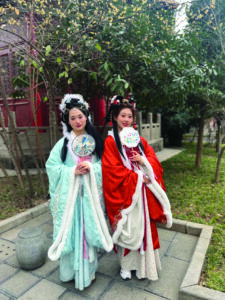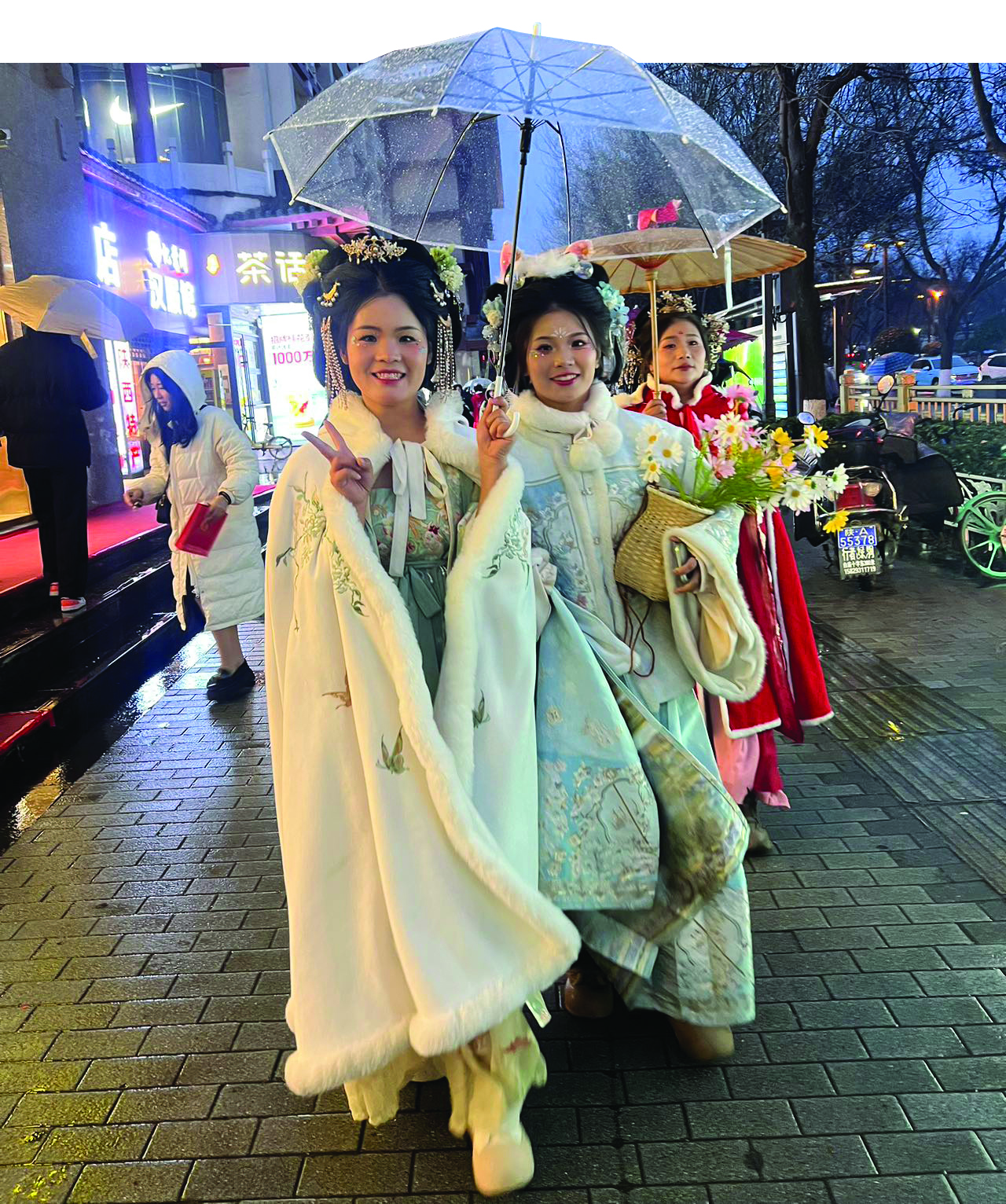
By Sami Wong, Founder & Managing Partner of 3Drips Research and Consulting
Beijing, People’s Republic of China
samtoine@hotmail.com
The world of Gen Z is fascinating, and many companies want to get a glimpse into this world to better understand their characteristics and distinctive qualities.
It is common to hear Gen Zers analyzed as if they are an undifferentiated population across different geographies—all sharing the same likes, dislikes, and political, economic, social, and environmental attitudes. Indeed, in China, Gen Zers have many characteristics we associate with this generation globally—such as digital fluency, tech-enabled lives, and a preference for authentic brand engagement.
 But there are also many differences—as culture plays a very significant role in their attitude toward life, lifestyle, shopping, and consumption habits. In this article, I discuss some of Gen Z’s unique characteristics and consumption trends, such as:
But there are also many differences—as culture plays a very significant role in their attitude toward life, lifestyle, shopping, and consumption habits. In this article, I discuss some of Gen Z’s unique characteristics and consumption trends, such as:
- They have found a way to seamlessly integrate their unique understanding of the world with the traditional Chinese mindset. In China, Gen Z embraces its cultural roots and national pride, and shows a strong preference for domestic brands.
- The desire for traditional values is connected to the lasting impacts of the pandemic and three-year shutdown in China, which have driven Gen Z to seek new ways to address past trauma, navigate the current economic climate, and cope with future uncertainties. This resilience repertoire also includes fostering a sense of togetherness and engaging in immersive experiences that are vibrant and exciting.
- At the same time, Chinese Gen Z displays more sensible and rational behavior in their approach to consumer culture. After all, many were raised by their grandparents, who were born in the 1940s and 1950s, passing down “golden values,” such as frugality and practicality.
 Emphasis on Cultural Roots
Emphasis on Cultural Roots
Gen Z all over the world have a strong willingness to share their opinions, often defining themselves via opposition to previous generations. However, Chinese Gen Zers have found a way to integrate their unique identity with the traditional cultural framework instead of positioning themselves against traditional and conventional thinking. Fashion is one of the primary spaces where this happens, and an example of this is the Hanfu (ºº·™) phenomenon, which integrates traditional Han clothing design with modern fashion elements. Many local designer brands, such as Shi San Yu and Han Shang Hua Lian (ʮȩÓà and ººÉлªÁ«), have surfaced, and Chinese consumers, Gen Zers in particular, strongly resonate with their design elements. The Hanfu resurgence has become an opportunity for them to embrace Chinese culture and a sense of national and personal individuality.
As a result, international fashion brands are slowly incorporating Chinese aesthetic elements into their design language to build a different level of resonance with Chinese consumers. For instance, Nike has released limited-edition sneakers adorned with patterns inspired by Chinese porcelain art and calligraphy. By integrating these cultural elements, these brands are not only appealing to Chinese Gen Z’s sense of national pride but also creating products that feel uniquely tailored to their cultural identity.
Concerning brand engagement, while the celebrity effect still holds some sway, Chinese Gen Z consumers are increasingly drawn to brand content that is down-to-earth, relatable, and creative. They seek emotional experiences from brands that resonate with their personal journeys and cultural identities rather than just looking up to celebrities as role models.
But fashion is not the only territory where this happens. In their quest for authenticity, Chinese Gen Z is actively engaging in various activities that help them reconnect with their cultural roots. Exploring different Chinese cities, camping, and participating in city walks have become popular ways for them to ground themselves after the prolonged turbulence of the pandemic. These activities are more than mere leisure pursuits; they serve as a form of healing and self-discovery.
From a cultural perspective, the practice of seeking roots and ancestors holds profound significance in Chinese society. It provides cultural and spiritual sustenance and fosters a strong sense of national cohesion and identity. Understanding one’s heritage and origins can offer greater resilience in facing uncertainties, a trait highly valued by Chinese Gen Z—whose formative years have been greatly impacted by the turbulence of the pandemic.
Smart Consumption Prioritizing Quality, Local Identity, and Technological Innovation
Chinese Gen Zers also have a thoughtful and discerning attitude toward consumption. In addition to design and visual impact—they like what is popular, innovative, fashionable, and reflects their own identity and personal taste—they also focus on the quality of products and services, cost performance, and brand reputation, particularly whether the brands are contributing positively to Chinese people and society.
They increasingly have a preference for domestic brands that incorporate new technology and reflect their unique values. Li Ning, a Chinese sportswear company, has become an iconic brand in China due to its success in combining traditional Chinese elements with modern fashion trends. When choosing a product, Chinese Gen Zers would now prioritize how a product will reflect their individuality and cultural identity rather than the perception of a premium brand.
The appreciation for local brands started before the pandemic, and as this momentum continues to grow, more niche brands from local designers are emerging as a result.
 Tech-Enabled Thoughtful Purchase Decisions
Tech-Enabled Thoughtful Purchase Decisions
Chinese Gen Zers appear to process vast amounts of fast-moving information effectively without being easily overwhelmed. This ability likely stems from their constant exposure to diverse information sources and platforms, including different news media, social media, video platforms, and shopping sites.
Foremost, it seems they have inherited a down-to-earth mindset from the previous generation, making them less likely to engage in spur-of-the-moment purchasing decisions. Instead, they tend to be thoughtful and deliberate when making their choices. Mobile internet and live-stream shopping are a significant part of the Chinese Gen Z purchasing process. In the “Chinese Gen Z consumption attitude” study run by 3Drips Research and Consulting, we interviewed a group of young people about their consumption habits, and it was not surprising that they use the internet heavily to research brands, products, and services, as they’ve grown up with technology and are extremely familiar with internet and social media interactions. Internet search not only enables them to research and compare brands, products, and services but also helps them cultivate a habit of exploring and cross-checking different aspects by viewing other consumers’ real-life experiences and recommendations through pictures and videos.
Therefore, word of mouth (WOM), a very important part of purchase decision-making for most generations, has been

transmuted for Gen Z to a mostly digital version: online reviews, users’ feedback, recommendations, and shared experiences. It has become one of the key shopping guidelines and has given rise to Key Opinion Consumers (KOC).
Interactive and Immersive Brand Experiences
In addition to looking at reviews, costs, and cross-checking before making purchases, Chinese Gen Zers are also looking for brands that offer interactive and immersive experiences. These add real, experiential value. These Gen Zers place more trust in the actual experience than simply relying on the brand message to motivate a purchase decision. This drive for interactive, immersive experiences highlights their need for brands to provide Gen Zers a chance to live into an emotional value, which they can then associate with the brand.
 Lululemon, for instance, is a great example to illustrate this phenomenon. Not only does it fulfill consumers’ expectation of good product performance and functionality (Lululemon’s Science of Feel™), but it also provides further emotional value by promoting a slow-paced urban lifestyle, for example, via organizing walking tours or leisurely walks through various parts of a city. Lululemon has successfully conveyed a key message to its customers that it values quality, bonding activities, but at the same time, it also promotes the need to have a better connection with the inner self to achieve a healthier lifestyle.
Lululemon, for instance, is a great example to illustrate this phenomenon. Not only does it fulfill consumers’ expectation of good product performance and functionality (Lululemon’s Science of Feel™), but it also provides further emotional value by promoting a slow-paced urban lifestyle, for example, via organizing walking tours or leisurely walks through various parts of a city. Lululemon has successfully conveyed a key message to its customers that it values quality, bonding activities, but at the same time, it also promotes the need to have a better connection with the inner self to achieve a healthier lifestyle.
Elevated Shopping Experience through Social Sharing and Smart Couponing
Chinese Gen Zers enjoy sharing new discoveries with their peer groups, allowing them to explore new places or try new products together. They are very comfortable leveraging online promotional coupons through mobile apps like WeChat, Meituan, Dianping, and PingDuoDuo, which facilitate group coupon sharing among family and friends.
This practice enhances the experience by allowing them to enjoy discounts and benefits together, adding to the fun of embracing new trends. The excitement lies not just in saving money but in the thrill of “outsmarting” the system. The sense of “togetherness” has become increasingly important, particularly following the long-term confinement experienced during the pandemic. Thus, this type of shopping activity has evolved into not only a fun experience but also a significant social sharing event.
 In Conclusion: Resilience and Culture Define the Consumption World of Chinese Gen Z
In Conclusion: Resilience and Culture Define the Consumption World of Chinese Gen Z
The lingering effects of the pandemic have further accentuated Chinese Gen Z’s need for meaningful connections, both with their cultural heritage and their immediate communities.
Even though modern Chinese Gen Zers are strongly influenced by Western culture, it is clear they are leaning into traditional beliefs in their everyday lives. Their increasing preference for domestic brands and the integration of local cultural elements highlights a strong sense of national pride. Their desire for genuine emotional experiences is balanced by an approach to consumption marked by rationality, thoughtfulness, and a keen sense of individuality.
For brands aiming to capture the attention of Chinese Gen Zers, it is crucial to understand and integrate these cultural nuances and values into their strategies. Integrating the strengths of both the East and the West, they can resonate more deeply with this influential demographic, ensuring a lasting and meaningful connection.




